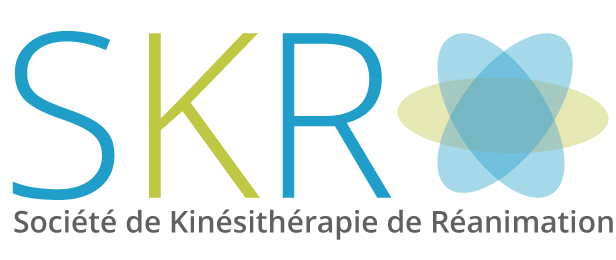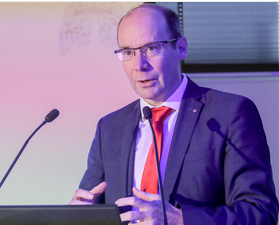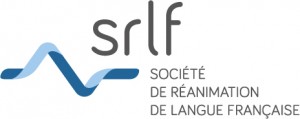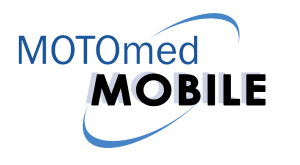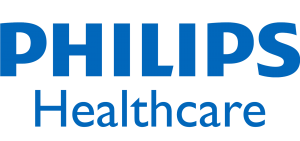A statement from the new ERS President – Professor Thierry Troosters
16 October, 2019
“Dear colleagues, I returned from the 29th annual European Respiratory Society International Congress with a warm feeling of satisfaction. More than 22,000 participants from all over the world enjoyed the programme, the venue, and the scientific, educational and social activities. The ability to meet colleagues face to face, and to learn and enjoy the beauty of the field of respiratory medicine is a unique selling point of our Congress. Thank you to all of those involved in the organisation of this event. In particular, the international programme committee led by the Education and Science Council Chairs [respectively] Professor Daiana Stolz and Professor Guy Brusselle, as well as all the ERS staff who worked tirelessly to make this Congress a great success.
“For me personally, the Madrid conference signaled the beginning of a special journey as President of our Society. I am continuing in the footsteps of Professor Tobias Welte, who deserves a great deal of credit for his role in steering the Society to its current highs in terms of membership and impact. Thanks a lot, Tobias.
“Although ERS is very visible during the annual ERS Congress in a ‘festival of respiratory health’ spirit, and we hope to see you in Vienna next year, do not forget that ERS is your companion all year round for educational and scientific updates in respiratory. In looking to the future, there is a busy year ahead for the management group and the Society. We will continue to build our educational portfolio and keep investing in online education, which aims to be accessible to all members. We see these online learning resources as a perfect complement to the annual congress for continuous professional development, and highly recommend the ERS Satellites and Respiratory Updates events to all interested healthcare professionals that cannot attend onsite. You can also now watch sessions from the ERS Congress from the comfort of your desk for a small fee, or members can enjoy the content for free after 1 January, 2020. As these tools require lots of investment from the Society, I sincerely hope our members will take full advantage of these resources, as they are a clear membership benefit.
“We are also working hard to upgrade our website and improve our digital tools, as digital is becoming an ever more important player in the medical field. Though it may worry some, digital tools have the potential to help healthcare professionals in clinical decision-making and in care. ERS will embrace the field of digital medicine and aims to build capacity in this area within the Society. A dedicated working group on m-Health/e-Health (Group 1.4) launched last year, and over the next few years, initiatives to help members better understand and work with digital systems as well as digital health solutions and education will be launched.
“My personal focus during this year as President will be on a number of areas where extra attention is needed. Our society must continue to be as inclusive as possible. Programmes for Early Career Members and the ERS Women’s Mentorship Programme will help to develop our young members and secure the future of our Society. Together with CERS, which is the assembly of our partnered National Societies, we want to cater to Europe and beyond with initiatives that leave nobody behind. As a President, I will ensure that all people who contribute to respiratory health as clinicians, scientists or advocates feel welcome in our Society, regardless of your professional specialty, background, race or ethnicity, and gender or age.
“We will continue to fight for our members, patients and citizens across Europe for their rights to have healthy lungs for life by advocating for clean air, stricter tobacco control, and by challenging e-cigarettes and new heated tobacco products, as these risk factors cause harm in increasing numbers. We will also continue to support our patients in their search for evidence-based information on respiratory conditions. However, we cannot do this alone! We need you to be our two-minute advocates, following in the example of the ERS Advocacy Council Chair, Professor Jørgen Vestbo.
“Finally, another field of interest is on non-pharmacologic interventions for patients. These interventions complement pharmacologic treatments and often ensure that patients can fully reap the benefits of their medicines. Pulmonary rehabilitation programmes, smoking cessation programmes, and other self-management programmes can make such a big difference to the burden of respiratory disease, and often it is not realised that these programmes come at a minimal net cost to healthcare systems. Unfortunately, these programmes are largely under-used by patients, or are simply not available or not accessible to patients. ERS can undertake further action to train professionals to set up programmes through courses, to map out where such programmes are available. Further, through our relationships with National Societies, we can help to increase awareness of non-pharmacologic interventions among policymakers and patients so that these programmes may be properly funded and can make a difference in the care for respiratory patients. This is the low hanging fruit in respiratory medicine!
“During the year, I intend to keep you updated on the progress made in these different fields. Please do not hesitate to reach out to me directly or to approach our executive committee members, or your Assembly Heads or Secretaries. All of them are committed to our common mission: every breath counts… and I count on you.”
Professor Thierry Trooster
ERS President 2019-2020
